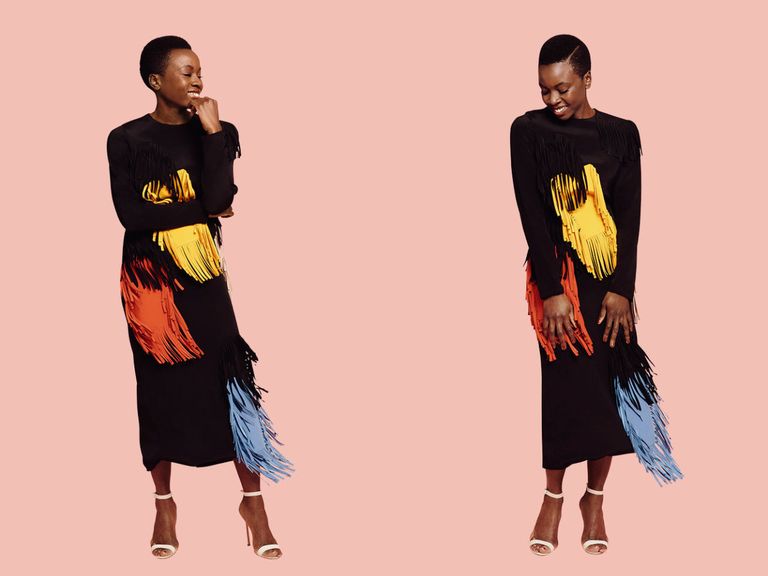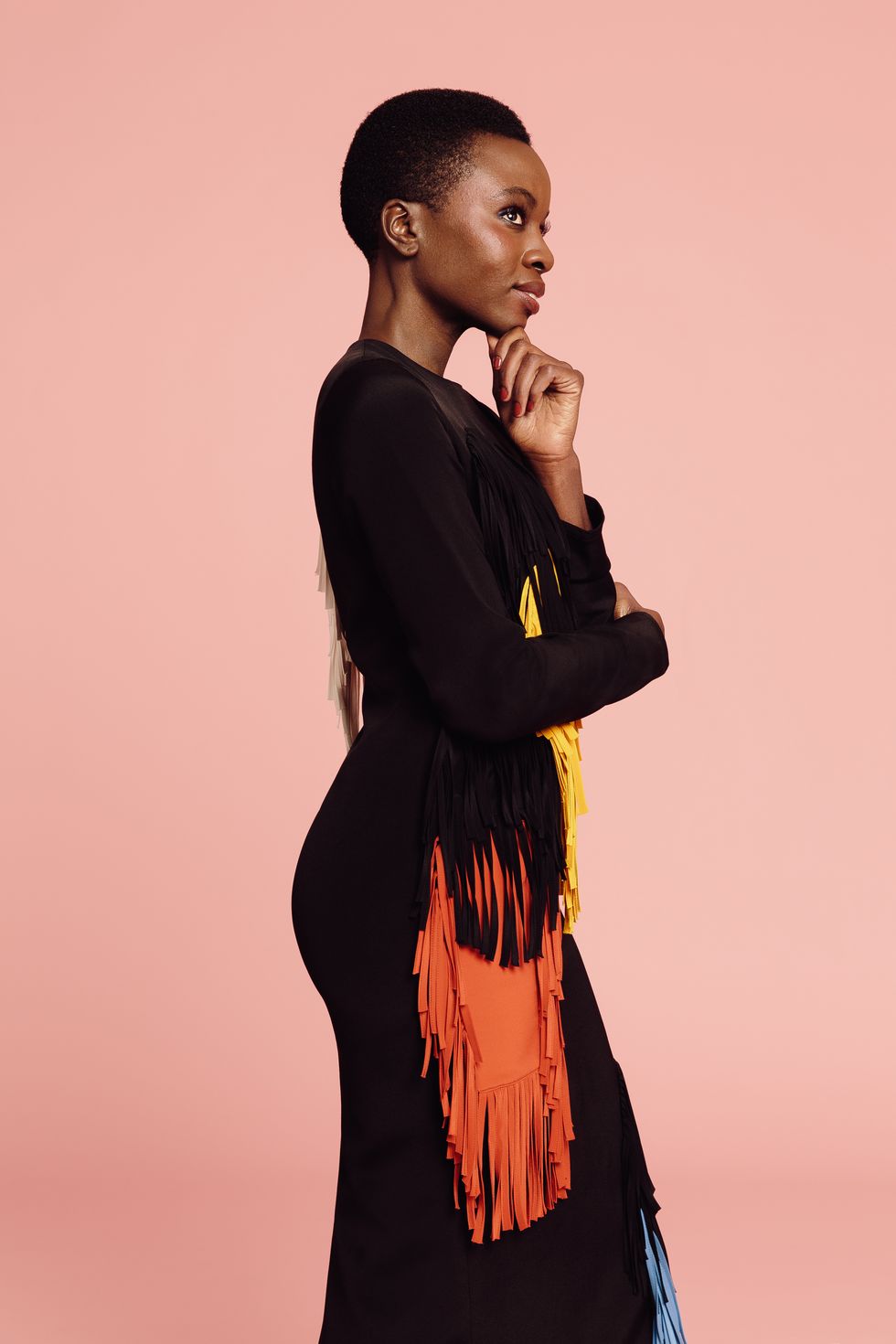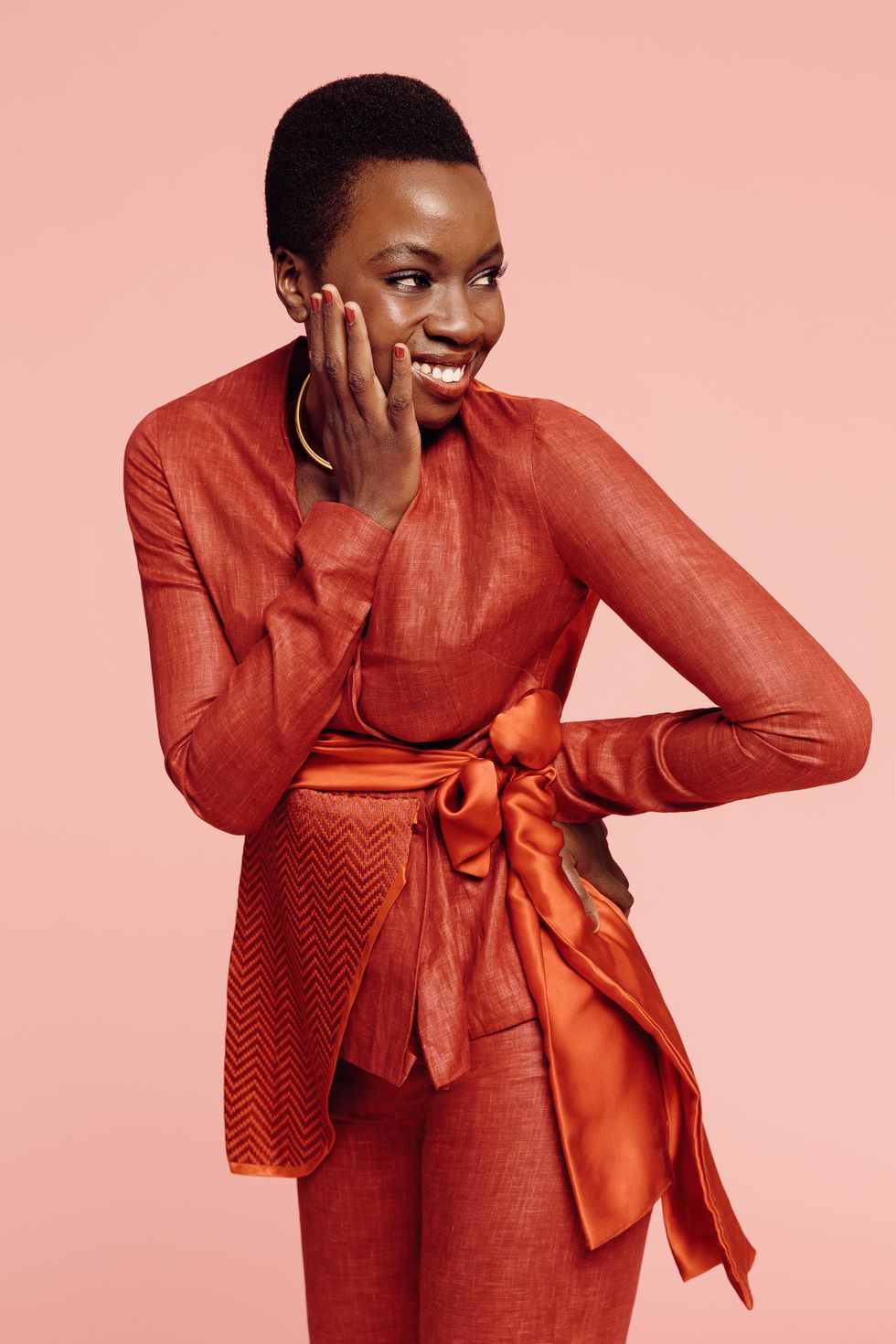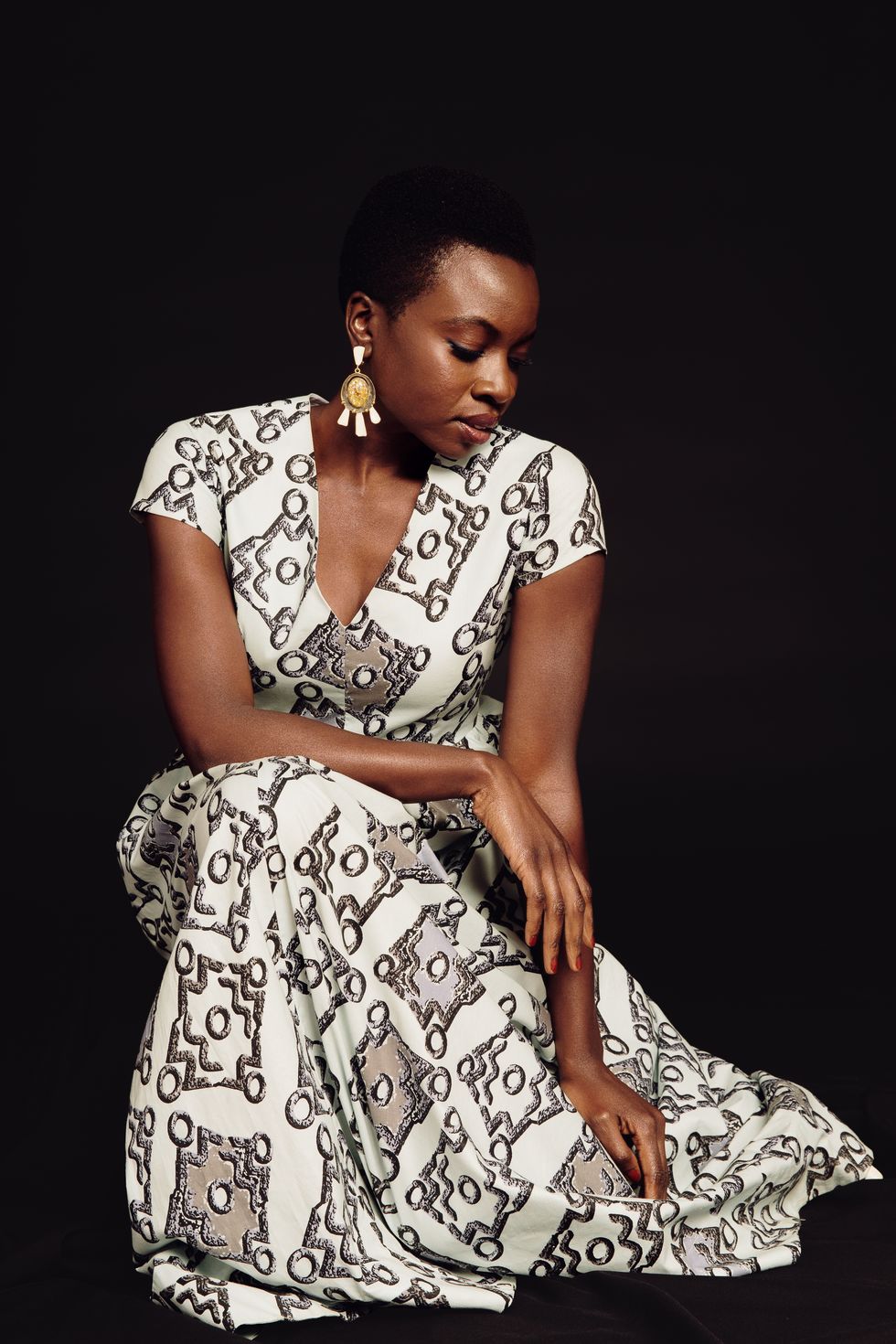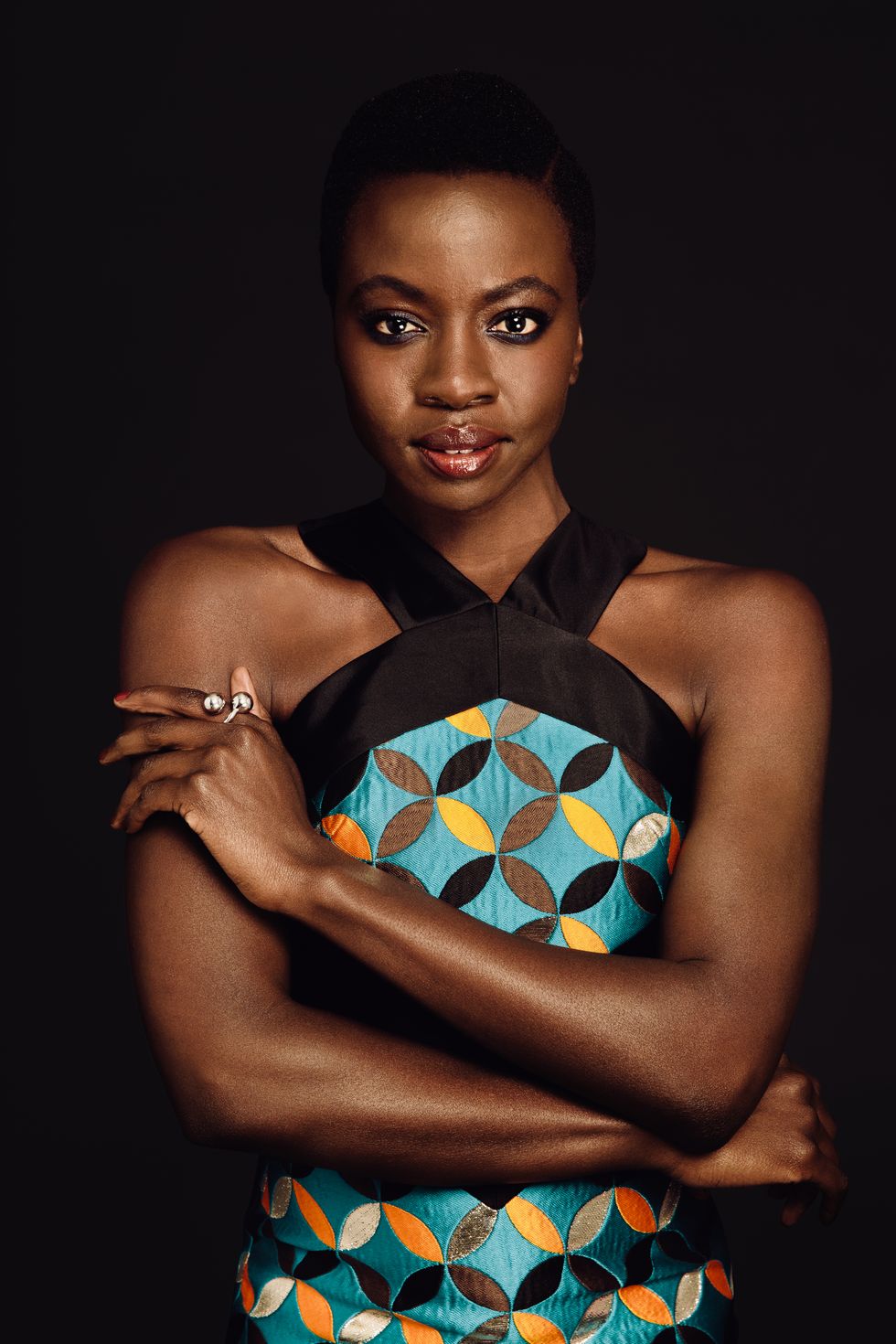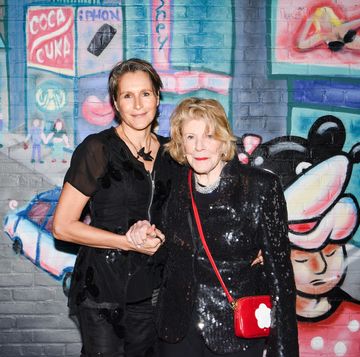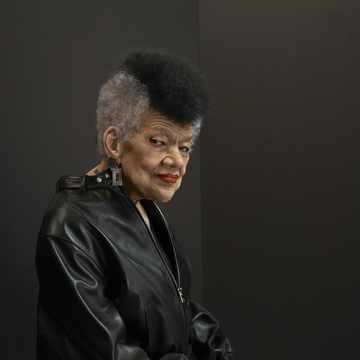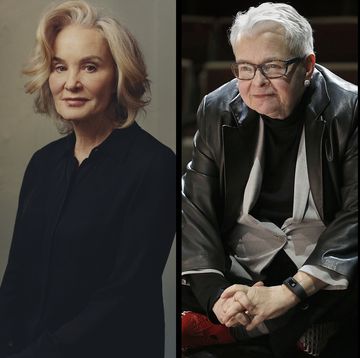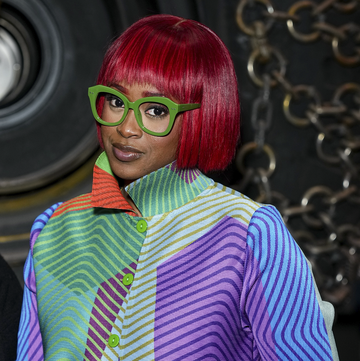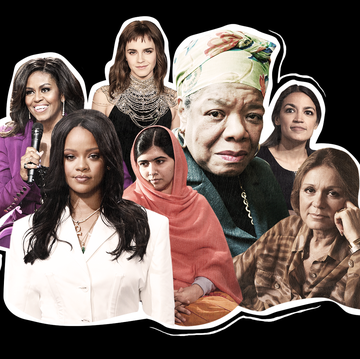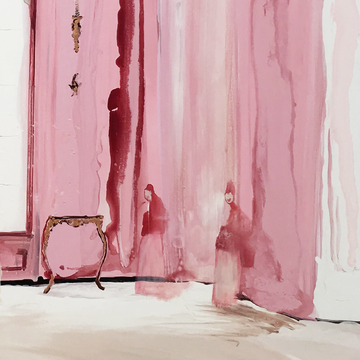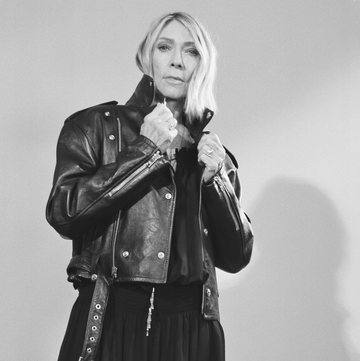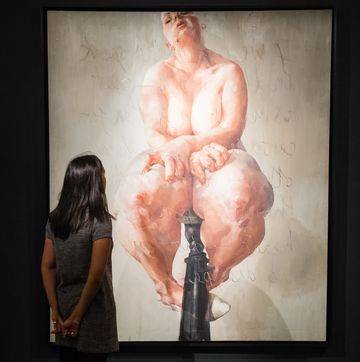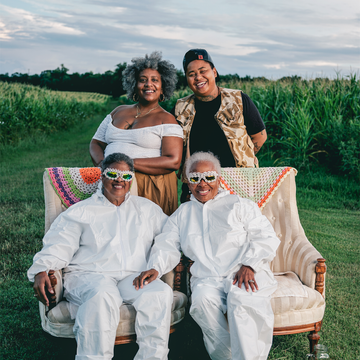It's easy to pinpoint the moment Danai Gurira became a television superstar. It was around 9.30pm on October 14, 2012: her first appearance on AMC's ratings-shattering The Walking Dead as the stone stoic, katana-wielding zombie slayer, Michonne, whose complexities, humanity, and strength—both physical and subtextual—Gurira expertly manifested on screen.
Casting the role (a fan-favorite character in the comic on which the show is based) was a priority for producers. The process was long, arduous, and secretive; and Gale Anne Hurd, an executive producer on the show, felt pressure to get it right. "A lot of fans assumed we would cast a woman out of the ultimate fighting arena. Instead, we wanted to cast someone with classical theater training who would be able to imbue the role with a lot more than just physical prowess," Hurd explains. "At first, Michonne is a character of few words, so we really needed someone with a lot going on behind the eyes and Danai can dominate a scene without even saying a line of dialogue—which is ironic, given that she's a playwright."
If Gurira's acting star soared seemingly overnight, her career as a playwright has been a steady, purposeful climb. Now 38 years old, she has written four plays in 11 years, each receiving plaudits from critics and amassing a small trove of awards. This month, her Broadway debut Eclipsed, starring Lupita Nyong'o as one in a group of women held captive by a warlord during the second Liberian civil war, earned six Tony nominations, including one for Best Play.
Gurira's plays all tell the stories of African women. They're heavy on research and historical context, threading weighty narratives through often classical frameworks with an unexpected and nimble wit. Of her four plays, Eclipsed is the first not have roots in Zimbabwe, where Gurira grew up. (The others, Into the Continuum, The Convert, and Familiar, which recently ran to rave reviews off Broadway, all explore issues of Zimbabwean identity.)
Though Gurira was born in Iowa, her chemistry professor father and university librarian mother decided to return to their native Zimbabwe when she was five. The move, she says now, "was crucial to who I am, what I am, whatever I am." Indeed, Gurira calls her childhood relatively idyllic. As a child of academics able to explore their ambitions in 1960s America, she was encouraged to explore her own curiosity and find outlets that most fulfilled her, like sports and drama. But Zimbabwe had officially gained independence only a little more than three years before Gurira's family returned, and she recalls the ways in which the lingering effects of colonization created conflicts in her young identity.
"Stepping out of colonization is a very tricky process," says Gurira. "It's not just all about, 'Now we can vote.' It's a multi-generation process of regaining an identity, but also accepting that your identity is not going to be what it was once before. It's always going to involve the assault of colonization—it will always be a part of the fabric of who we are."
In school, Gurira's syllabus included only Western classics and the likes of Jane Austen. "It was never Chinua Achebe or Wole Soyinka," says Gurira, who only discovered African authors when she returned stateside to earn a degree in psychology from Minnesota's Macalester College, before graduating with an MFA in acting from New York University's Tisch School of the Arts. Within a year, in 2005, her first play Into the Continuum was playing off Broadway. It was then that Gurira found a way to "create opportunities through my story-telling for people of African descent," she says. "It's something I've constantly found shocking—all this astounding talent amongst black woman that never gets to be seen or heard."
With Eclipsed, Gurira made a pointed decision not to write any male characters onto the stage. Their presence is alluded to off in the wings, but the all-female cast creates an unblinkingly focus on the women whose experiences are so often obscured. In doing so, Gurira made Eclipsed the first ever Broadway play to feature a director, writer and cast who are all black women. In fact, it is the first Broadway play with a cast, director, and writer who are all women, period. "It's great," Gurira says of the distinction before quickly adding, "But why hadn't it happened already? We obviously still have a long way to go."
Inspired by a photo she saw in a 2003 New York Times article of a female freedom fighter named Black Diamond, Gurira travelled to Liberia in 2007 to interview dozens of women affected by the second Liberian civil war. Gurira characteristically dove into the their lives headlong. She worked connections through a friend at the UN to meet a certain South African cultural attaché, who led her to a Liberian diplomat at the U.S. embassy, who connected her to workers on the ground, who introduced her to several Liberian women. One, an artist and teacher, introduced Gurira to some young girls in exchange for help teaching drama. Another, a multimedia artist working on energy drink launch parties, brought her into the fold with some women who took her dancing. "[Their stories] were amazing," says Gurira. "They were devastating, they were exhilarating, they were everything." Nyong'o and the cast then brought these stories to life at Broadway's Golden Theatre with heartrending authenticity. "Everything in the play is pulled from something," explains Gurira. "Some of the things I've taken straight from people's mouths, those little terminologies that are so specifically Liberian."
LaLa Anthony, who joined Eclipsed as a producer for its Broadway run, describes it as "a rollercoaster of emotions." She helped shape the 10,000 Girls promotional campaign, an initiative to bring girls from all walks to see the show, and admits that what made her happiest was "how the girls wanted to have conversations about the show after. They want to have a conversation that a lot of people aren't having, about what's going on in the world, in Liberia and beyond," says Anthony.
Asked about the need to tell more minority stories on stage and screen, Gurira—an ardent supporter of African designers who is dressed here exclusively in clothes from African labels—narrows her eyes in thought. "I never consider myself a minority. I see people who look like me in Barbados, in Trinidad, in Haiti, in London, and in Brooklyn. So I don't know what the heck anyone means when they call me a 'minority'," she says. "There's something about that word to me. It just minimalizes people." She also questions the existence of "minority stories," instead pointing to the universal appeal of a story told well—and honestly. "If a story is telling a truth, then why shouldn't it affect everybody?" she asks. "I've been affected by [the work of] white men before. Why can't black women on stage tell stories that can affect white men in the audience?"
Gurira isn't one to shrink away from that, or any challenge. Her day-to-day life ("one huge multitask," as she calls it) is a marvel to even her most prolific friends and colleagues. "Danai is one of those people who could win an Emmy, an Oscar, a Tony. And then if you told me she was going to release an album and win a Grammy, I'd totally believe it," says comedian and Nerdist podcast impresario Chris Hardwick, who also hosts of The Talking Dead aftershow on AMC. "She makes the rest of us feel like we're really not doing enough."
Case in point: Earlier this year, between Walking Dead promotion and midwifing two plays in New York, Gurira added a new project to her docket, flying back and forth to Atlanta to film the upcoming Tupac biopic, All Eyez on Me. Gurira plays the late rapper's mother, Afeni, a former Black Panther and lifelong activist who passed away earlier this month, on May 2. "I could study her my whole life. I was totally amazed by how dynamic she was," she says. "There are so many things about her you never learn about—how she taught [her son] to love Shakespeare as a kid, how she was able to get him into the Baltimore School for the Arts, how she encouraged him perform at the Apollo at age 12 in Raisin in the Sun. You know, they were pretty down and out, but she managed to do all that."
Gurira believes we can all learn a little bit from Afeni's life. "She was a revolutionary and he was a revolutionary. And there's something so complicated about being a revolutionary because you're not working with the system. The system and you don't fit. And it was such an interesting lesson to learn—how in the Sixties and Seventies they had to be so outspoken with who they were and what they believed in so that they could be heard. Everyone can learn from that—the courage it takes to transform a system." And as this theater season has made clear, Danai Gurira is doing her part, and then some.
Hair by Naivasha Johnson; Makeup by Kim Bower

Nojan Aminosharei is the Entertainment Director of Men’s Health and the Special Projects Editor of Harper’s Bazaar. He was previously the Entertainment Director of Hearst Digital Media, and before that a Senior Editor at GQ. Raised in Vancouver, Canada, Nojan graduated from NYU with a master’s degree in magazine journalism. The late Elaine Stritch once told him, “What the fuck kind of name is Nojan? I’m 89 years old, I don’t have time for that shit.”
